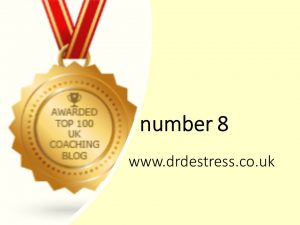Exercise to combat stress
Exercise as a Way to De-Stress
The link between exercise and stress relief, fighting disease and physical improvement has been established long ago. Doctors and physicians always encourage others to stay physically active, and they have a damn good reason for that. Besides being beneficial for physical fitness, exercising is necessary for maintaining mental fitness as well. It improves concentration and alertness, reduces fatigue, and enhances overall cognitive functions. When stress drains your energy and ability to focus, this is especially helpful.
Stress and the Brain
The whole body feels the impact of the effects stress has on the brain. Meaning your mind will feel better once your body starts feeling better. Engaging in physical activity stimulates the brain to produce its natural painkillers – endorphins. Also, it improves one’s ability to sleep, which further aids stress reduction. Regular aerobic exercise has been proven to improve self-esteem, elevate and stabilize mood, and decrease overall levels of tension.
There are many ways in which stress affects your brain, going as far as changing its neural networks and triggering stem cells to malfunction. Chronic stress makes you emotional and forgetful, it halts the production of new brain cells and can create free radicals that kill brain cells. It can also affect the amygdala, an area of your brain that acts as a fear centre. Due to chronic stress, the number of neural connections and activity in this part of your brain increases, creating a vicious circle of anxiety and fear.
Exercise to combat stress
Besides the increased sense of well-being and overall health, exercise has some direct stress-relieving benefits.
Exercise equals meditation in motion. The purpose of meditation is disconnecting from the material world that surrounds you and keeping yourself in the present moment. It helps you calm down, rewire your neural pathways, and refreshes your outlook on things by de-cluttering the mind and allowing new points of view to sneak in. After a fast-paced game of basketball or several laps around the local park, you’ll notice how you’ve forgotten about the stressful situations that occurred that day.
Exercise pumps happy hormones. Your happy chemicals are endorphins, dopamine, serotonin, and oxytocin. Endorphins are released when you exercise, interacting with brain receptors that reduce the perception of pain. They are the reason behind the “runner’s high” – the euphoric feeling that follows a workout or a run, accompanied by an energizing and positive outlook on life.
Exercise improves mood. Regular exercise can lower the symptoms related to anxiety and mild depression, relax you, and increase your self-esteem. All these things can give you a sense of control over your life and body. Being unable to reach certain goals or lose pounds as planned shouldn’t depress you further. It is important to reap motivation for exercise as a benefit of your improved mood. Keep training for the exercise itself, stay consistent, and the results will come afterwards.
Stress is directly affected and reduced by many forms of exercise.
Physical activity will reduce your blood sugar, improve cholesterol and prevent illness, reduce the risk of osteoporosis and fractures, diabetes, obesity, stroke and heart attack. It prolongs life, increases energy, and slows down the aging process.
Exercise should be a daily ritual. I doesn’t mean that you have to hit the weights every day and engage in strenuous training, but to have at least 30 minutes of moderate exercise (walking) and 15 minutes of vigorous exercise. Add some stretching and strength training 2-3 times per week, and there you have it – a great, well-balanced program for stress reduction and health.
Samantha has a B.Sc. in nutrition, and has spent two years working as a personal trainer.
Since then, she has embarked on a mission to conquer the blogosphere. She is now a contributor to BoxRox,
the NaturalNews blog, and blogs regularly at her own blog Ripped.me. When not in the gym or on the track, you can find her on Twitter, or in a tea shop.



